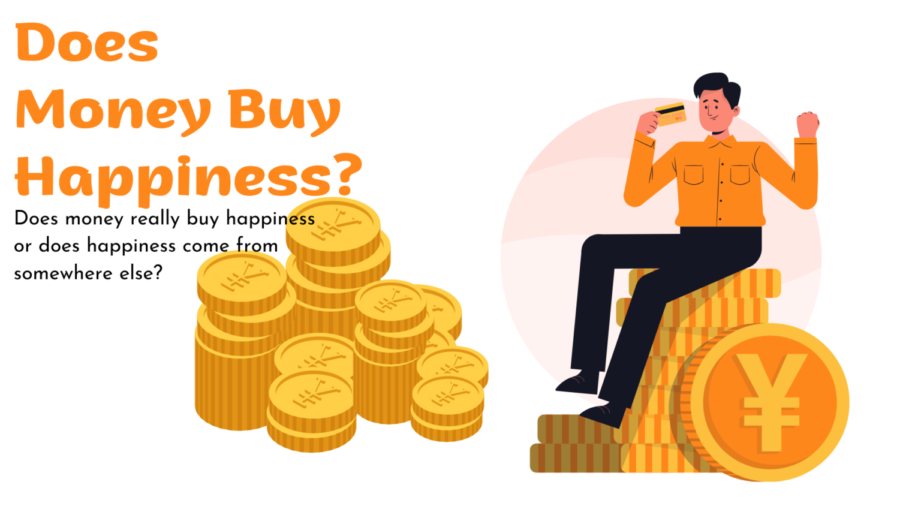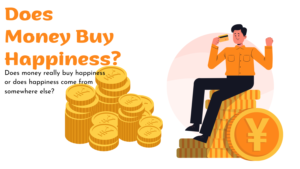Money buys happiness
Does money really buy happiness or does happiness come from somewhere else?
November 16, 2022
The cost of living is skyrocketing – household expenses such as gas, groceries, and clothing are all increasing, and the average American isn’t making any more. Not many people in the high ups seem to be aware of this financial crisis Americans are in except for First Republic who said, “The continued impact of the pandemic, including labor shortages and supply chain disruptions, has increased the cost of food, housing, fuel and more. In fact, over the last 12 months, consumer prices — a broad measure of inflation — rose to 9.1%, which is the biggest increase in four decades.”
The average consumer makes about $4667 after taxes, monthly, but the average person spends about $5,000 on necessities according to First Republic. In 2020, housing was 23% of monthly income, transportation costs 16%, insurance was 12%, and food was 8%. When push comes to shove, there isn’t anything left for the occasional splurge.
Money is important to contributing to personal happiness. Having more money means being able to splurge once in a while and at the same time provides a home in safer neighborhoods. More food on the table means better health and fuel efficient cars can mean more traveling and more leisure time. However, everything does have a limit, normally a higher income means more stressful jobs, longer hours, and less time with family.
A majority of people assume that “things” will provide them with more happiness than experiences. Experiences can be anything from concerts, to a cooking class, a nice vacation, going to a museum, bowling, etc. These experiences will not only make you happy in the moment, but it will also create memories that you’ll have for a lifetime, and these experiences will become great stories to share with others.
One student who believes that money can buy happiness is Kiley Knudson. She said, “People sometimes say that their family is all they need to be happy, but if you don’t have clothing, shelter, or food you would be suffering. All those things cost money therefore just having those necessities contribute to your happiness.”
Being financially stressed can also increase the chances of having poor health. Human Performance Resource says, “Financial stress can increase your risk of poor health and negatively impact your productivity and mood.” People who have more debt than assets have reported higher stress levels, depression, and higher levels of blood pressure. All of this can lead to other medical problems, which in turn can cause even more stress, since many people in America can not afford to go to the doctors.
In America, there is not free health care, this can cause stress to low income families. Becoming sick or injured when your poor is frightening, due to the fact that low income families wouldn’t be able to afford medical bills, especially if you are at the hospital more for a check up. Going in for a check up in America costs between $300 and $600 depending on your insurance, which many low income families don’t have.
Public transportation is another huge expense in America, owning a car comes with many exorbitant costs like gas, insurance, and maintenance. If someone isn’t able to afford a car, they must take public transportation. Working Knowledge talks about how recently, public transportation has become inaccessible and expensive. This greatly affects people of low incomes, often causing tardiness in school and work.
One of the stressors in people’s relationships is money. Money tends to lead to frequent arguments during relationships, especially in low income households. Figuring out how to spend one’s money, where to send the kids for daycare, safe neighborhoods to bring up a family in, food on the table, better insurance, medical bills costs, and more. These are all topics couples fight over. Having more money can provide security which can contribute to your happiness. The less stressed someone is over food, bills, insurance, etc. leads to overall happiness.
Emily Schmidt believes that money does buy happiness. She said, “I think money buys happiness because it helps take the aspect of money away. People who struggle with money problems are normally stressed and aren’t as happy as they could be when they have the money resources they need.” Not having to worry about finances frees people to spend time doing things that make them happy.
Retirement is another topic that can loom over the average person. To retire comfortably, someone would need around 2 million dollars. That may seem crazy, but if someone begins to save when they turn 18 or even 30, the money can add up quick, especially since most Americans put 10% of their yearly income into a retirement account every year.
However, low income households cannot afford to put money into a retirement account. This can bring on more stress, and if a family member gets sick or is just too old to take care of themselves, the family has no choice but to bring the family member into their home. This new addition to the household will bring on more expenses now, because now that family has to provide shelter, food, and that family has to take care of the family member and all medical problems which arise with them.
The Atlanic says that money is a way to bring people closer together. Not only by sharing your money with people who may need it or buying friends nice gifts. Money can do a lot of damage, but it is also helpful to lower stress and increase happiness in the average American family. Raising positive emotions by doing things that bring you joy like being able to afford college, going out to dinner with friends or going sightseeing can bring a lot of happiness into your life. Each of these things and more are all brought by financial security.





